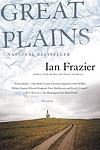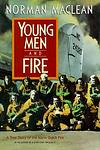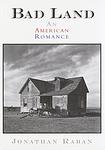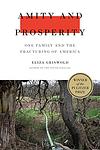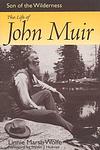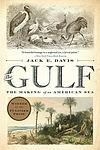The Greatest "American History, Nature & Environment" Books of All Time
Click to learn how this list is calculated.
This list represents a comprehensive and trusted collection of the greatest books. Developed through a specialized algorithm, it brings together 300 'best of' book lists to form a definitive guide to the world's most acclaimed books. For those interested in how these books are chosen, additional details can be found on the rankings page.
Genres
The "American History" category encompasses a broad range of books that delve into the events, figures, and forces that have shaped the United States from its pre-colonial days to the present. This genre includes works on pivotal moments such as the American Revolution, Civil War, and civil rights movements, as well as studies of political, social, and cultural developments across various eras. It covers biographies of influential leaders, analyses of policy changes, and examinations of societal shifts. Whether providing comprehensive overviews or focusing on specific incidents or decades, books in the American History category aim to illuminate the complexities of the nation's past, offering readers insights into the events that have defined the American experience and the context for its ongoing evolution.
The "Nature & Environment" category encompasses a broad range of books that delve into the intricacies of the natural world and the complex relationship between humans and their environment. Titles within this genre may explore topics such as wildlife, ecosystems, conservation efforts, climate change, and sustainability. They can include scientific texts that provide in-depth analysis of environmental processes, as well as more narrative-driven works that aim to inspire appreciation and stewardship of nature through personal anecdotes, stunning photography, and explorations of the beauty and diversity of the Earth's flora and fauna. This category is designed for readers who are curious about the planet's natural wonders, concerned about environmental issues, and interested in learning about ways to protect and preserve the world for future generations. Whether through practical guides on living more sustainably or through compelling stories of outdoor adventure, books in the "Nature & Environment" genre aim to educate, inform, and sometimes mobilize readers to engage with the natural world around them.
Countries
Date Range
Reading Statistics
Click the button below to see how many of these books you've read!
Download
If you're interested in downloading this list as a CSV file for use in a spreadsheet application, you can easily do so by clicking the button below. Please note that to ensure a manageable file size and faster download, the CSV will include details for only the first 500 books.
Download-
1. Journals by Meriwether Lewis, William Clark
This book is a compilation of the detailed journals kept by two explorers during their expedition across the American West, from 1804 to 1806. The journals provide a first-hand account of their encounters with Native American tribes, their observations of new plant and animal species, and the challenges they faced while traversing uncharted territories. The explorers' writings not only offer insights into their historic journey but also serve as a valuable resource for understanding early 19th-century American history and the country's westward expansion.
-
2. The Unsettling of America by Wendell Berry
This book is a profound critique of modern industrial agriculture, arguing that it degrades the land and disconnects people from their food sources. The author advocates for a return to more traditional, sustainable farming methods, which he believes will lead to healthier communities and a more balanced relationship with the environment. He also explores the broader cultural implications of this shift, including the potential for greater self-reliance and a deeper sense of connection to the natural world.
-
3. Great Plains by Ian Frazier
"Great Plains" is a travelogue that takes readers on a journey through the vast expanse of the American Great Plains, exploring its history, geography, and culture. The author travels from North Dakota to Texas, delving into the history of Native Americans, pioneers, and outlaws. The book provides a detailed account of the region, its people, and its significance in shaping the American West, offering a vivid portrait of the landscape and its influence on the country's identity.
-
4. In the Heart of the Sea by Nathaniel Philbrick
This historical narrative tells the true story of the 19th-century whaleship Essex, which was rammed and sunk by a sperm whale in the South Pacific. Stranded thousands of miles from land, the crew of the Essex was pushed to their limits and forced to do the unthinkable to stay alive. The tale explores the harrowing ordeal of these men through their long journey at sea, their encounters with nature's fury, hunger, disease, and their own fear and despair.
-
5. Cadillac Desert by Marc Reisner
"Cadillac Desert" is a detailed exploration of the water crisis in the American West. The book delves into the history, politics, and environmental impact of water development in this region, highlighting the role of government policies and engineering projects. It also discusses the unsustainable use of water resources, the impact on local ecosystems, and the potential consequences of continued mismanagement, providing a comprehensive overview of a critical environmental issue.
-
6. Young Men and Fire by Norman Maclean
The book tells the tragic story of 13 smokejumpers who lost their lives in the 1949 Mann Gulch fire in Montana. The author examines the circumstances leading up to the disaster, the fire's aftermath, and its lasting impact. The narrative combines elements of reportage, biography, and nature writing, and it serves as a meditation on writing, grief, and the human character.
-
7. Bad Land: An American Romance by Jonathan Raban
This book is a historical exploration of the American West, specifically the region of Eastern Montana. The author delves into the experiences of the British and Scandinavian settlers who were lured to this area in the early 20th century by railroad advertisements promising fertile farmland. Through a combination of historical research, personal narratives, and travelogue-style observations, the author paints a vivid picture of the harsh realities these settlers faced, including drought, isolation, and economic hardship. The book also reflects on the lasting impact of these experiences on the region's culture and identity.
-
8. Collapse by Jared Diamond
"Collapse" is an exploration of why certain societies throughout history have thrived while others have deteriorated and collapsed. The book delves into environmental problems, climate change, rapid population growth, and unwise political decisions as factors that contribute to the downfall of a civilization. The author uses examples from history such as the Mayans, the Vikings in Greenland, and modern examples like Rwanda and Haiti, to illustrate his points. It serves as both a historical analysis and a warning for modern societies to learn from the past in order to avoid a similar fate.
-
9. The Exploration of the Colorado River by John Wesley Powell
This book is a firsthand account of the first U.S. government-sponsored passage through the Grand Canyon. The author, a one-armed Civil War veteran, and his team of nine men risked their lives to accomplish this feat in 1869. They faced dangerous rapids, food shortages, and potential attacks from Native American tribes. The narrative provides detailed descriptions of the geography, geology, and Native American inhabitants of the region, offering invaluable insights into the uncharted territory of the American West.
-
10. Narrative of a Journey Across the Rocky Mountains to the Columbia River by John Kirk Townsend
This book is a first-hand account of an adventurous journey across the Rocky Mountains to the Columbia River. The author shares his experiences and observations from the trip, providing detailed descriptions of the terrain, wildlife, and Native American tribes he encountered along the way. His narrative offers a fascinating glimpse into the American West during the early 19th century, serving as both a historical document and a captivating adventure story.
-
11. Amity and Prosperity: One Family and the Fracturing of America by Eliza Griswold
This book is a detailed account of a family living in rural Pennsylvania, whose lives are disrupted by the fracking industry. It explores the economic desperation that leads small towns to welcome fracking, the environmental and health disasters that follow, and the legal battles that families must wage to protect their rights. The narrative also delves into the political and social divides that the fracking industry exacerbates, providing a comprehensive look at the impact of this controversial practice on American society.
-
12. Toms River: A Story of Science and Salvation by Dan Fagin
The book is a detailed account of a small town in New Jersey, Toms River, which became the epicenter of a major environmental disaster due to industrial pollution. It chronicles the community's struggle for justice, the scientific investigation into the high cancer rates, and the eventual legal battle against the chemical companies responsible. The narrative intertwines public health, legal drama, and investigative journalism, providing a cautionary tale about the consequences of environmental negligence.
-
13. Son of the Wilderness by Linnie Marsh Wolfe
"Son of the Wilderness" is a biography that chronicles the life and accomplishments of a renowned naturalist and conservationist. The book explores his early years growing up in the harsh wilderness, the experiences and influences that shaped his passion for nature, and his tireless efforts in advocating for the preservation of natural landscapes. The book also highlights his instrumental role in the establishment of the National Park Service and his enduring legacy in the field of environmental conservation.
-
14. The Gulf: The Making of An American Sea by Jack E. Davis
This book provides an in-depth exploration of the Gulf of Mexico's history, from its geological formation to the present day. It highlights the Gulf's significance in American history and culture, its rich biodiversity, and the environmental challenges it faces due to human activities. The narrative also underscores the Gulf's economic importance, including its role in the petroleum industry, fishing, and tourism. It is a comprehensive study of the Gulf's multifaceted nature, its environmental and economic value, and its enduring influence on American society.
Reading Statistics
Click the button below to see how many of these books you've read!
Download
If you're interested in downloading this list as a CSV file for use in a spreadsheet application, you can easily do so by clicking the button below. Please note that to ensure a manageable file size and faster download, the CSV will include details for only the first 500 books.
Download

